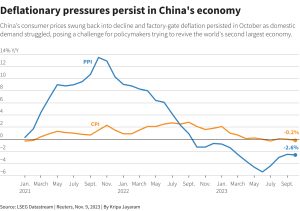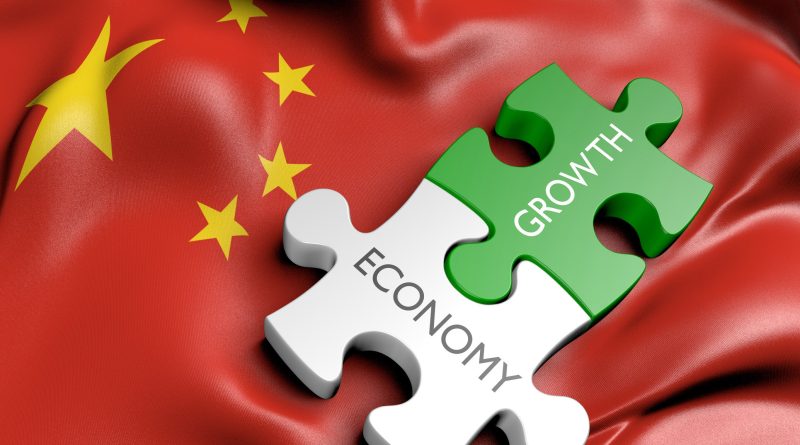China to export deflation to the world as economy stumbles
Table of Contents
Introduction
As the world grapples with economic trade uncertainties, China’s role in the global economy becomes increasingly less pivotal. With its massive manufacturing capabilities and intricate supply chains, China has the potential to impact not just its domestic economy but also global trade. One significant concern arising is the possibility of China export deflation to the world as its own economy stumbles. This blog delves into the factors contributing to this scenario and its potential counteractions. .

China’s Economic Landscape
China has long been known as the world’s plant, churning out goods at an unknown scale and supplying everything from electronics to fabrics. still, in recent times, China’s profitable growth has shown signs of decelerating down. Factors similar as rising labor costs, demographic shifts, and an evolving artificial geography have led to a more restrained growth outlook for the country.
The ongoing trade pressures between China and major husbandry like the United States have further added to the challenges. Tariffs and trade restrictions have disintegrated force chains and dampened investor confidence, impacting China’s import- acquainted frugality.
Implicit for Deflationary Pressures
As China’s profitable growth slows and domestic demand weakens, there is a threat of deflationary pressures arising within the country. Deflation, characterized by falling prices of goods and services, can have mischievous goods on an frugality. Consumers may defer purchases in expectation of farther price declines, leading to reduced spending and profitable recession.
China’s capacity to produce goods at a lower cost than numerous other countries means that its exports could come cheaper in the global request. This could spark a downcast curl in prices worldwide as challengers are forced to lower their prices to remain competitive. Such a script could lead to a broader deflationary terrain, particularly in sectors where China is a dominant exporter.
Impact on Global Economy
The prospect of China export deflation to the world carries significant counteraccusations for the global frugality. Affectation, which central banks strive to maintain at a moderate position, could fall below target situations or indeed turn negative in some regions. This would pose challenges for policymakers in stimulating profitable exertion and maintaining price stability.
likewise, diligence in other countries, especially those directly contending with Chinese goods, may face jacked pressure. Businesses may struggle to maintain profit perimeters amidst price competition, leading to job losses and potentially driving a surge of insolvencies.
Central banks around the world may find themselves in a delicate position, scuffling with the binary challenges of supporting profitable growth while fending off deflationary pressures. Monetary policy tools similar as interest rate cuts and quantitative easing measures may be stationed, but their effectiveness could be limited in the face of global deflationary headwinds.
Mitigating pitfalls and adaption
Addressing the threat of China exporting deflation requires a coordinated trouble at both the domestic and transnational situations. China needs to concentrate on rebalancing its frugality towards domestic consumption and reducing its reliance on exports. Structural reforms aimed at boosting domestic demand, enhancing productivity, and fostering invention could help sustain profitable growth without aggravating deflationary pressures. Internationally, policymakers need to nearly cover developments in China and unite to insure macroeconomic stability. To alleviate the threat of global deflation, policymakers may need to recalibrate exchange rate programs, trade agreements, and nonsupervisory fabrics.Additionally, stakeholders could enhance adaptability against external shocks by actively diversifying supply chains and reducing dependence on any single country for critical goods..

Conclusion
As China grapples with economy trade challenges, the China export deflation to the world looms large. Amidst the uncertainty surrounding the full extent of this threat, it underscores the global interconnectedness and the imperative for coordinated action. By tackling structural imbalances and fostering cooperation, stakeholders can strive for a more resilient and sustainable future, alleviating the challenges posed by deflationary pressures stemming from China’s economic slowdown.
Also Read:- Unlock Seamless Shipping: Using ShipStation to Navigate the e-commerce World




